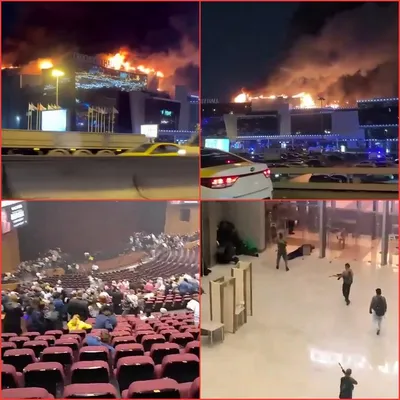Moscow: As Moscow saw one of its deadliest militant attacks in decades, with over 130 people killed as gunmen opened fire at a concert hall, questions have swirled on social media why the Islamic State targeted Russia.
The attack, which comes days after Russian President Vladimir Putin won his fifth term in office, was carried out by the Islamic State Khorasan (ISIS-K), an affiliate of the Islamic State in Afghanistan.
The attack comes amid a long-standing and persistent conflict between Russia and the Islamic State that started with President Putin’s intervention in the Syrian Civil War in 2015. Putin had backed President Bashar al-Assad against the Islamic State.
This is, however, not the first time that ISIS-K has targeted Russia. In 2022, the ISIS-K carried out a suicide attack on the Russian Embassy in Afghanistan’s Kabul, which killed eight people, including two embassy employees.
AGAINST PUTIN’S PROPAGANDA, OPPRESSION OF MUSLIMS
While there has been no recent precedent of Islamic State carrying out attacks in Russia, experts noted how the outfit opposed Putin in recent years.
An expert from the Washington-based Wilson Center told Reuters that ISIS-K “sees Russia as being complicit in activities that regularly oppress Muslims”.
Over recent years, human rights organisations like Amnesty International have highlighted cases of Muslims being denied employment, education, or housing opportunities.
The Muslim population in Russia is estimated to be around 20 million. Most of the Muslim population resides in the North Caucasus region, which includes Chechnya. The region, which has experienced two wars since the collapse of the Soviet Union, has seen the emergence of extremist groups, including those affiliated with the Islamic State.
Human rights groups have flagged abuses against Muslims, including torture, restrictions on religious practices, surveillance, arbitrary arrests, and targeted violence in the region.
Moreover, the Russian government has enforced several policies targeting religious groups under the guise of combating extremism in Crimea, which it annexed in 2014.
An Amnesty International report said Russia has brought a law according to which praying, preaching or disseminating religious materials outside specifically designated places was a punishable offence. The report also mentions instances of Russian security personnel disrupting Friday prayers in Crimean mosques.
Moreover, remarks by Putin that the hijab was not a part of “traditional Islam” and was borrowed from an alien tradition has also given to resentment. In 2012, wearing hijabs at schools was first banned in Russia’s Stavropol region.











